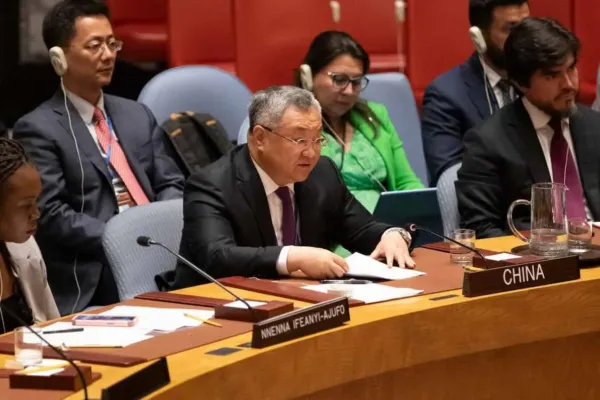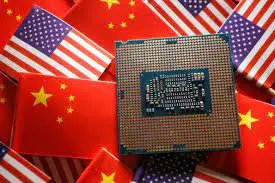China-Led AI Resolution Passes in UN General Assembly

China-Led AI Resolution Passes in UN General Assembly, Calls for Inclusive Global Cooperation
UN General Assembly Adopts China-Led AI Resolution
Introduction and Diplomatic Victory
In a significant diplomatic achievement for Beijing, the United Nations General Assembly unanimously adopted a China-led resolution on Monday. This resolution urges the international community to establish a “free, open, inclusive and non-discriminatory” business environment for the development of artificial intelligence (AI) across both wealthy and developing nations.
Global Support and Inclusive AI Development
The resolution, which received co-sponsorship from over 140 nations including the United States, affirms that all countries should “enjoy equal opportunities” in the non-military domain of AI. It calls for global cooperation to assist developing countries facing unique challenges, ensuring they are not left behind in AI advancements.
China’s Stance on AI Governance
Fu Cong, China’s permanent representative to the United Nations, emphasized the importance of a unified approach to AI governance. “A fragmented approach toward AI, toward digital technology, is not going to benefit anybody,” Fu stated after the assembly session. He highlighted the resolution’s intent to underscore the UN’s crucial role as the “most inclusive organization” in AI governance.
Addressing the North-South Gap
Widening Technological Gap
Ambassador Fu described the resolution’s significance as “great and far-reaching,” noting the rapid advancement of AI technology and the growing gap between developed and developing countries. He expressed gratitude for the positive role the U.S. played in the process, acknowledging high-level discussions between the two nations on AI issues.
Complementary AI Resolutions
The newly adopted resolution follows the assembly’s adoption of the first global AI resolution in March, proposed by Washington and co-sponsored by China. This earlier resolution focused on safeguarding human rights, protecting personal data, and monitoring AI risks. Fu stated that the two resolutions are “complementary,” with the latest one being “more focused on capacity building.”

China-US-AI-Investment-Restriction
Enhancing Global AI Governance
Incorporating Developing Nations’ Voices
China has been actively seeking to include voices from the developing world in discussions on AI governance. In October, China released its Global AI Governance Initiative, advocating for equal rights in AI development and usage for all countries, regardless of size, strength, or social system.
Dialogue with the United States
During the inaugural AI safety dialogue between Beijing and Washington in Geneva in May, China pushed for enhancing global AI governance and proposed expanding the UN’s role in this domain. Beijing aims to ensure that the U.S. does not solely dominate the discourse on setting global AI standards.
US-China Technological Competition
Ongoing Rivalry in Hi-Tech Fields
The U.S. and China remain engaged in intense competition to advance in high-tech fields such as AI and semiconductors. In March, Washington tightened regulations limiting China’s access to U.S.-made AI chips and chip-making tools, initially introduced in October 2022. The export controls were updated to close loopholes and further restrict Beijing’s technological capabilities.
Recent Executive Order
In August 2023, President Joe Biden signed an executive order banning U.S. individuals and companies from investing in “sensitive” sectors in China, including AI, semiconductors, and quantum computing. The U.S. Treasury Department, defining the restrictions, stated they would focus on technologies that pose national security risks to the United States.
Call for Lifting Sanctions
On Monday, Ambassador Fu called on the U.S. to lift these sanctions in line with the newly adopted resolution, emphasizing the importance of fostering an inclusive business environment. “If people are true to the content of this resolution, it says that it is important to foster an inclusive business environment. We don’t think that the U.S. actions are along that line,” he stated.
Conclusion
Future of Global AI Governance
The adoption of the China-led AI resolution at the UN General Assembly marks a step towards more inclusive global cooperation in AI development. As technological competition continues, the international community faces the challenge of balancing national security concerns with the need for collaborative progress in AI governance.
Check out the other AI news and technology events right here in AIfuturize!



